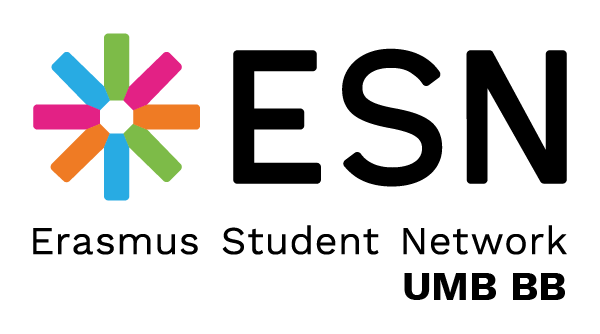ERASMUS+ PROGRAMME
Have you ever wanted to live abroad and experience a foreign culture, meet new people and earn a foreign language? Have you ever thought about enriching the period of your studies and having better chances while looking for a job in the future? For nearly 30 years, the EU has funded the Erasmus program, which has enabled over three million European students to spend part of their studies at another higher education institution or with an organization in Europe.
And it brings such opportunities not only to you – it is for students, staff, trainees, teachers, volunteers and more. It's not just about Europe or Europeans either - with Erasmus+, people from all over the world can access opportunities. The Erasmus+ program (European Region Action Scheme for the Mobility of University Students) was established in 1987 and was associated with other programs such as Leonardo, Comenius, etc. Since 2014 these programs all belong under one with the name Erasmus+. It is a flagship initiative of European Commission, which enables students to study and work abroad in one of the 34 participating countries for a certain period of time (from 3 to 9 months). It forms an important part of the European Union’s Lifelong Learning Programme (LLP).
To participate in the Erasmus student mobility you need to be studying in an LLP participating country and to be enrolled in at least the second year in your home institution. In the framework of the program, several activities supporting mobility are supported, such as the Erasmus Intensive Language Courses, where you can improve your language skills by participating in one of the courses offered at the host university. By mid-2010, over 2.2 million students have participated in the exchange in one of more than 4 000 Higher Education Institutions in Europe. Annually, around 200 000 students pack their bags and depart abroad to spend part of their studies in a foreign country.
For students
Studying abroad is a central part of Erasmus+ and has been shown to have a positive effect on later job prospects. It is also a chance to improve language skills, gain self-confidence and independence and immerse yourself in a new culture.
Staff (teaching)
With Erasmus+, opportunities are available to spend time teaching at an educational institution abroad. These opportunities are available to both staffs working in the education sector and to individuals working outside the sector invited to share their knowledge and experience.
Staff (training)
With Erasmus+, training opportunities are available to staff working in education, both in teaching and non-teaching capacities. Training periods abroad can consist of job shadowing, observation periods or specific training courses abroad.
Trainees
Erasmus+ helps you gain valuable experience in the workplace by supporting traineeships abroad. Erasmus+ support for traineeships is available for higher education students and recent graduates, as well as vocational education and training students, apprentices and recent graduates.
Young people
Erasmus+ is open to all young people, not just those currently enrolled in education or training. With Erasmus+, you can volunteer across Europe and beyond or participate in a youth exchange abroad.
Youth workers
Erasmus+ supports the professional development of youth workers through training or networking periods abroad. Periods abroad can consist of training courses, study visits, job shadowing or observation periods at relevant organizations, and more.

